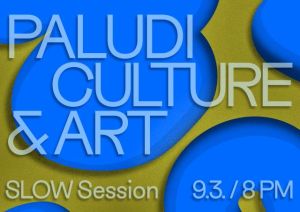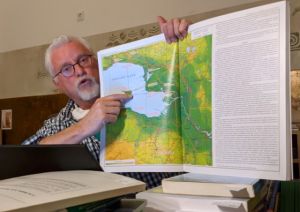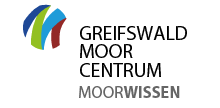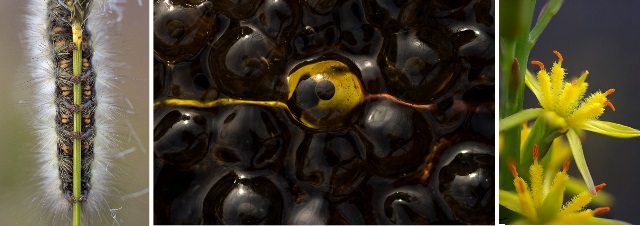Special events: Joint Sessions & Workshops
Joint Session "Finance options for livelihoods from wet peatlands"
Co-organised by the partners of the Greifswald Mire Centre, FAO, UNEP, IUCN and WWF
10.03.2021, 11.30 – 12.30, Stage A
Management of peatlands in wet state and the development of livelihoods in these landscapes present both a challenge and a great opportunity for local economies and for achieving national climate commitments. Improvements to peatland management and development of sustainable livelihoods are lacking financial instruments and incentives. Various stakeholders are searching for funding that could help communities to be more resilient and build back better in peatland landscapes. The session will focus on sharing examples of successful resource mobilization for developing sustainable livelihoods in wet peatland landscapes. The event lists and presents available options to close the financial gap for scaling-up sustainable peatland management.
Expert organizations will elaborate on the question: what are potential and existing finance frameworks and mechanisms available for wet livelihood development on peatland landscapes? The solutions will focus on i. donor schemes and fiscal incentives, ii. ecosystem services capitalization, and iii. private sector investment and business case development. In this joint event, FAO and partners will discuss opportunities to build the business case for restoration, paludiculture and other livelihood options in wet peatland landscapes. The results of this session aim at supporting various stakeholders with the will to develop wet livelihoods on peatland landscapes and lacking resources.
Presentations:
- Results of the peatland management sessions, case and global consultations (Maria Nuutinen & Laura Villegas, FAO)
- Sustainable Land Use Finance – inspiring investment in Peatlands (Diana Kopansky, UNEP)
- Landscape finance: emerging models for financing peatland restoration at scale (Paul Chatterton, IUCN)
- Investing in peatlands – from bankers to bogs (Clifton Bain, Emma Goodyer & Renée Kerkvliet Hermans, WWF)
Virtual excursions
In eight inspiring virtual excursions (films of ca. 7 min) demonstration sites for paludiculture and peatland restoration as well as paludiculture products in Germany and UK will be presented, integrated in the scheduled session (after lunch break of days 1 and 2), but can also be viewed after their presentation in plenary sessions at any time during the conference in the exhibition room.
Heat from peat, but climate friendly!
Biomass from wet peatlands can deliver a renewable climate friendly resource for delivering heat to small towns as Malchin in Mecklenburg-Vorpommern. See how a farmer, an energy manager and GMC-scientists make that happen. This Film of Swantje Furtak and Max Wenzel was one of the virtual excursions of the RRR2021 conference.
Tour the Typha field
Cultivating Typha could solve the conflict between climate protection and drainage based agriculture. And it is feasible. See how the GMC's scientists try to proof that on a wet island surrounded by dry land. This Film of Swantje Furtak and Sabine Wichmann was one of the virtual excursions of the RRR2021 conference.
Come to cultivate peat mosses
Peat is a fossile and finite resource - and its use is climate damaging. Peat mosses are a renewable resource with neary the same charcteristics as peat and thus its perfect substitute. You just need to cultivate it. The GMC's scientist show how to. This Film of Swantje Furtak and Greta Gaudig was one of the virtual excursions of the RRR2021 conference.
Visit the Paludi-Tiny House
hy a tiny house made from paludiculture materials? Because we want to show what can be created in and from paludiculture - and in addition extremely climate-friendly! Alder, wet meadow grass, cattails and reeds are in the tiny house. All of these building materials are possible to use on a large scale as locally as possible for climate-friendly buildings. This film by Swantje Furtak was part of the RRR2021 conference.
Sphagnum farming in the UK
Workshop: Global Network for Paludiculture - Needs & Options for Exchange
10.03.2021, 16.30 – 18.00, Stage A
Sharing knowledge is important to advance good practices in paludiculture projects. In this session, we first want to collect the existing network options for paludicultures around the world (based on a first input by the organisers). In a second step, we invite a discussion around needs not yet met as well as opportunities to improve existing communication and learning possibilities about paludiculture. Thus, this session welcomes all interested in networking and sharing knowledge around practical paludiculture projects.
Organisation and Moderation: Susanne Abel (Greifswald Mire Centre) & Rafael Ziegler (HEC Montreal)
Photography Workshop: Gifts from Nature's Peatlands
10.03.2021, 16.30 – 18.00, Stage B
When we give back to Mother Nature, she surely rewards us.
The benefits of peatlands are not just environmentally positive for our fight against climate change, the benefits for our biodiversity are massive. Maintaining the water table level above, or close to, the soil surface promotes the development of unique flora and fauna, encouraging the replenishing of a diverse living carpet.
So many ancient marsh loving species are reawakened, replenished, and make themselves visible to us again. Sphagnum mosses propagate and radiate, spreading their feathery limbs, while Marsh Marigold raises its beautiful yellow bloom to the sky. Frogspawn glistens in the Spring sunshine as the frogs celebrate their watery world. Ancient orchids reveal their splendour, Bog Asphodels yellow anthers flutter in the breeze. Carnivorous plants entice with their sticky tentacles, as the insect world celebrates the abundance of nectar in these marshy wetlands. Each season brings with it a feast for the senses.
Join me on a visual journey through these marshy peatland wildernesses and celebrate the magical life within them.
For any photography enthusiasts, all images are taken handheld, with natural light, and all camera settings will be revealed for each image shown.
Organisation and Moderation: Tina Claffey
Pictures by T. Claffey
Slow Session: Paludiculture & art

09.03.2021, 20:00 – 22:00
This Session welcomes the RRR2021 participants to discover paludiculture from another perspective. The designer and artist Vreni Knödler and Lisa Marie Quester will join us - the winners from the paludiculture residency program 2020, a collaboration of the Greifswald Mire Centre and the BURG Giebichenstein University of Art & Design. Together we will search for intersections between the presentations of the conference and the works of the two artists. What can we learn and take away from each other? The SLOW session will function as a deliberate counter-design to the strictly timed scientific conference.
Organisation & Moderation: Susanne Abel (Greifswald Mire Centre), Prof. Dr. Sara Burkhardt (Burg Giebichenstein University of Art and Design), Prof. Aart van Bezooijen (Free University of Bozen-Bolzano, Faculty of Design and Art), Michael Trepel (Kiel University)
Vreni Knödler
Vreni Knödler, Burg graduate in the field of communication design, is working as an independent graphic designer in Berlin:
“Everything changes. The rate of change is growing. If we want to keep pace we have to speed up. Disconnecting from our daily routines gives freedom to look closely to what surrounds us, staying in nature allows us to reconnect with ourselves and our environments. The observations made during the 3 weeks Paludi residence are transferred into a digital exhibition space that gives its visitors the chance to slow down and experience the mire in a new way: appealing to reflection before conviction, promoting an interdisciplinary dialogue instead of monologues.”
Lisa Marie Quester
Lisa Marie Quester has studied Textile Arts at Burg Giebichenstein, University of Art and Design Halle, and is fascinated by apparent trivialities, silence and relations:
“Observing a mire contains a bunch of possibilities for an artistic research. The organism with its course of action: absorbing, receiving and conserving embodies fundamental conditions, which are about to disappear. The uptake and sequestration function is brutally degrading in peatlands. In the field of communication and human interaction lending-an-ear and «listening» is slowly disappearing. Transmitting is en vogue.”
The artistic work of Lisa Marie Quester visualizes the threatened and rescued peatlands (=rewetted areas) in form of Shibori textiles - a Japanese manual resist dyeing technique. Additionally, inspired by philosophical thoughts of Byung-Chul Han and Andreas Weber.
Literature Evening with Hans Joosten

10.03.2021, 20:00 – 22:00
Peatland expert and bibliophile Prof. Hans Joosten regularly present stories and facts around peatlands at public literature evenings in the Greifswald Peatland and Nature Conservation International Library (PeNCIL). For the conference he opens the doors of the library to the participants and invite you to listen about a strong woman, who laid the foundations of peatland research in the tropics under the most difficult conditions: Betje Polak - Queen of tropic peatlands.














